Related Research Articles
In jurisprudence, double jeopardy is a procedural defence that prevents an accused person from being tried again on the same charges following an acquittal or conviction and in rare cases prosecutorial and/or judge misconduct in the same jurisdiction. Double jeopardy is a common concept in criminal law – in civil law, a similar concept is that of res judicata. The double jeopardy protection in criminal prosecutions bars only an identical prosecution for the same offence except when the defendant is a servicemember as the courts have ruled that the military courts are a separate sovereign, therefore servicemembers can be held in two separate trials for exactly the same charges; however, a different offence may be charged on identical evidence at a second trial. Res judicata protection is stronger – it precludes any causes of action or claims that arise from a previously litigated subject matter.
In common law systems, the peremptory pleas are defensive pleas that set out special reasons for which a trial cannot proceed; they serve to bar the case entirely. Pleas in bar may be used in civil or criminal cases; they address the substantial merits of the case.
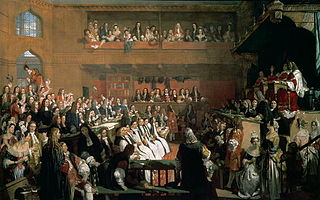
Jury nullification, also known in the United Kingdom as jury equity, or a perverse verdict, is when the jury in a criminal trial gives a verdict of not guilty even though they think a defendant has broken the law. The jury's reasons may include the belief that the law itself is unjust, that the prosecutor has misapplied the law in the defendant's case, that the punishment for breaking the law is too harsh, or general frustrations with the criminal justice system. It has also been commonly used to oppose what jurors perceive as unjust laws, such as those that once penalized runaway slaves under the Fugitive Slave Act, prohibited alcohol during Prohibition, or criminalized draft evasion during the Vietnam War. Some juries have also refused to convict due to their own prejudices in favor of the defendant. Such verdicts are possible because a jury has an absolute right to return any verdict it chooses. Nullification is not an official part of criminal procedure, but is the logical consequence of two rules governing the systems in which it exists:
- Jurors cannot be punished for passing an incorrect verdict.
- In many jurisdictions, a defendant who is acquitted cannot be tried a second time for the same offense.
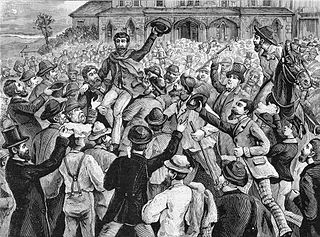
In common law jurisdictions, an acquittal means that the criminal prosecution has failed to prove that the accused is guilty beyond a reasonable doubt of the charge presented. It certifies that the accused is free from the charge of an offense, as far as criminal law is concerned. The finality of an acquittal is dependent on the jurisdiction. In some countries, such as the United States, an acquittal prohibits the retrial of the accused for the same offense, even if new evidence surfaces that further implicates the accused. The effect of an acquittal on criminal proceedings is the same whether it results from a jury verdict or results from the operation of some other rule that discharges the accused. In other countries, like Australia and the UK, the prosecuting authority may appeal an acquittal similar to how a defendant may appeal a conviction — but usually only if new and compelling evidence comes to light or the accused has interfered with or intimidated a juror or witness.
A hung jury, also called a deadlocked jury, is a judicial jury that cannot agree upon a verdict after extended deliberation and is unable to reach the required unanimity or supermajority. A hung jury may result in the case being tried again.
Not proven is a verdict available to a court of law in Scotland. Under Scots law, a criminal trial may end in one of three verdicts, one of conviction ("guilty") and two of acquittal.

Clarence Earl Gideon was an impoverished American drifter accused in a Florida state court of felony breaking and entering. While in prison, he appealed his case to the U.S. Supreme Court, resulting in the landmark 1963 decision Gideon v. Wainwright holding that a criminal defendant who cannot afford to hire a lawyer must be provided one at no cost.
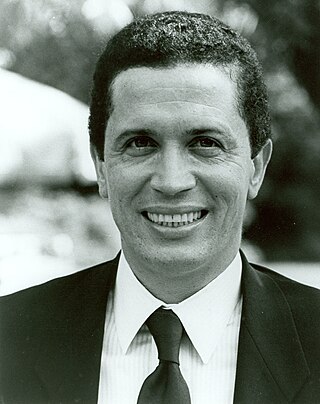
Harold Eugene Ford Sr. is an American politician and Democratic former member of the United States House of Representatives representing the area of Memphis, Tennessee, for 11 terms—from 1975 until his retirement in 1997. He was the first African-American to represent Tennessee in the U.S. Congress. He is a member of the Ford political family from Memphis.

Gerald Leonard Spence is a semi-retired American trial lawyer and author. He is a member of the Trial Lawyer Hall of Fame, and is the founder of the Trial Lawyers College. Spence has never lost a criminal case before a jury either as a prosecutor or a defense attorney, and did not lose a civil case between 1969 and 2010. He is considered one of the greatest lawyers of the 20th century, and one of the best trial lawyers ever. He has been described by legal scholar Richard Falk as a "lawyer par excellence".
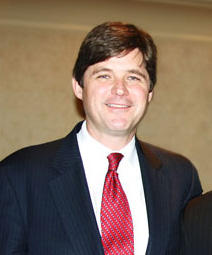
William Kennedy Smith is an American physician and a member of the Kennedy family who founded an organization focused on land mines and the rehabilitation of landmine victims. He is known for being charged with rape in a nationally publicized 1991 trial that ended with his acquittal.
A new trial or retrial is a recurrence of a court case. A new trial may potentially be ordered for some or all of the matters at issue in the original trial. Depending upon the rules of the jurisdiction and the decision of the court that ordered the new trial, a new trial may occur if:
The 1980 Miami riots were race riots that occurred in Miami, Florida, starting in earnest on May 18, 1980, following an all-White male jury acquitting five white Dade County Public Safety Department officers in the death of Arthur McDuffie, a Black insurance salesman and United States Marine Corps lance corporal. McDuffie was beaten to death by four police officers after a traffic stop. After the officers were tried and acquitted on charges including manslaughter and evidence tampering, a riot broke out in the Black neighborhoods of Overtown and Liberty City on the night of May 17. Riots continued until May 20, resulting in at least 18 deaths and an estimated $100 million in property damage.
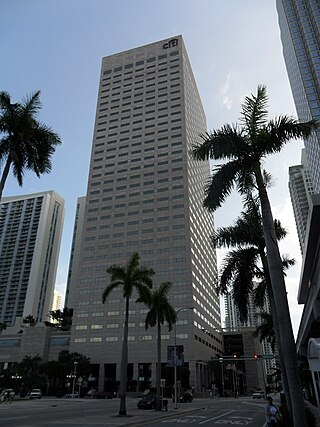
Citigroup Center is a high-rise office building located at 201 South Biscayne Boulevard in Downtown Miami, Florida. Although Miami Center is not the city's tallest building, it is a symbol of an earlier downtown. Built in 1983, it is older than most of the taller buildings in Miami, which were built in the last decade. In addition, the Miami Center is immediately adjacent to Bayfront Park, and is unobstructed when looking at the skyline from Miami Beach to the east. The building is 484 ft tall and has 34 floors. It is located on Biscayne Boulevard and Southeast 3rd Street, east of the Central Business District and is adjacent to the Southeast Financial Center and the Hotel Intercontinental. The Bayfront Park Metro Station is also located close to the building. The tower consists of 100% office space.
In the United States, jury nullification occurs when a jury in a criminal case reaches a verdict contrary to the weight of evidence, sometimes because of a disagreement with the relevant law. It has its origins in colonial America under British law. The American jury draws its power of nullification from its right to render a general verdict in criminal trials, the inability of criminal courts to direct a verdict no matter how strong the evidence, the Fifth Amendment's Double Jeopardy Clause, which prohibits the appeal of an acquittal, and the fact that jurors cannot be punished for the verdict they return.
The Double Jeopardy Clause of the Fifth Amendment to the United States Constitution provides: "[N]or shall any person be subject for the same offence to be twice put in jeopardy of life or limb..." The four essential protections included are prohibitions against, for the same offense:

M. Gerald Schwartzbach is an American criminal defense attorney.
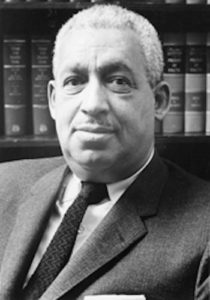
William Robert Ming Jr. was an American lawyer, attorney with the National Association for the Advancement of Colored People (NAACP) and law professor at University of Chicago Law School and Howard University School of Law. He presided over the Freeman Field mutiny courts-martial involving the Tuskegee Airmen. He is best remembered for being a member of the Brown v. Board of Education litigation team and for working on a number of the important cases leading to Brown, the decision in which the United States Supreme Court ruled de jure racial segregation a violation of the Equal Protection Clause of the Fourteenth Amendment of the United States Constitution.
James Foster Neal was an American trial lawyer who was best known for prosecuting labor leader Jimmy Hoffa and later top Nixon administration officials in connection with the Watergate scandal.
The 1989 Miami riot was sparked after Miami Police Department (MPD) officer William Lozano shot Black motorcyclist Clement Lloyd on January 16, 1989. Lloyd, 23, was fleeing from another MPD officer who was chasing him for an alleged traffic violation. Lozano was on foot investigating an unrelated incident, heard about the situation on his police radio and later stated the motorcycle "veered toward him". Lozano fired a shot at the motorcycle, striking Lloyd in the head and killing him instantly. The motorcycle crashed into an oncoming car, injuring two occupants. Lloyd's passenger, Allan Blanchard, 24, died the following day from his injuries. Several Black witnesses stated that Lozano walked almost to the center of the street with his handgun and poised ready to shoot for several seconds as the motorcycle approached. Rioting began almost immediately after the shooting in Overtown, and on the following day in Liberty City, both predominantly Black neighborhoods of Miami, and continued until January 19 when the Chicago Bulls including star player Michael Jordan played a scheduled game in Overtown against the Miami Heat, who were in their inaugural season. Schools were closed and police cordoned off a 130-block area and teargassed rioting crowds.
Blueford v. Arkansas, 566 U.S. 599 (2012), was a decision of the Supreme Court of the United States that clarified the limits of the Double Jeopardy Clause. The Supreme Court held that the Double Jeopardy Clause does not bar retrial of counts that a jury had previously unanimously voted to acquit on, when a mistrial is declared after the jury deadlocked on a lesser included offense.
References
- 1 2 "Roy Black". Roy Black. Retrieved November 17, 2023.
- ↑ "Castroneves acquitted on tax evasion charges". ESPN.com. April 17, 2009. Retrieved October 7, 2024.
- ↑ "Aventura Business Monthly website". Archived from the original on February 5, 2011.
- ↑ Conchita Sarnoff & Lee Aitken (March 25, 2011). "Behind Pedophile Jeffrey Epstein's Sweetheart Deal". The Daily Beast. Retrieved March 25, 2011.
- ↑ "The Verdict". Vanity Fair . September 15, 2008.
- 1 2 3 4 5 Miami Magazine: "Black's Magic" BY CHRISTOPHER BOYD Spring 1998
- ↑ Sajjad, Muhammad (January 9, 2025). "Roy Black: The Renowned Attorney and His Journey to Legal Excellence". Worldinfoupdate. Retrieved January 9, 2025.
{{cite web}}: CS1 maint: url-status (link) - ↑ Christopher Boyd (Spring 1998). "Black's Magic". Miami Magazine. Retrieved August 29, 2011.
- ↑ Rohter, Larry (May 29, 1993). "Miami Police Officer Is Acquitted In Racially Charged Slaying Case". The New York Times. Retrieved November 20, 2023.
- ↑ Hartocollis, Anemona (June 16, 2022). "A Businessman Is Acquitted in a Georgetown Admissions Trial". The New York Times. ISSN 0362-4331 . Retrieved July 24, 2022.
- ↑ "Roy Black listing at IMDB". IMDb .
- ↑ "Roy Black". Super Lawyers. Retrieved November 28, 2023.
- ↑ People Magazine: "Love and the Law - Four Years After the William Kennedy Smith Trial, Lawyer Roy Black and a Juror Are Husband and Wife" by Karen S. Schneider March 06, 1995
- ↑ Karen S. Schneider (March 6, 1995). "Love and the Law". People . Retrieved August 5, 2008.
- ↑ "Season 2 Bio: Lea Black". BravoTV.com. Archived from the original on December 11, 2012.